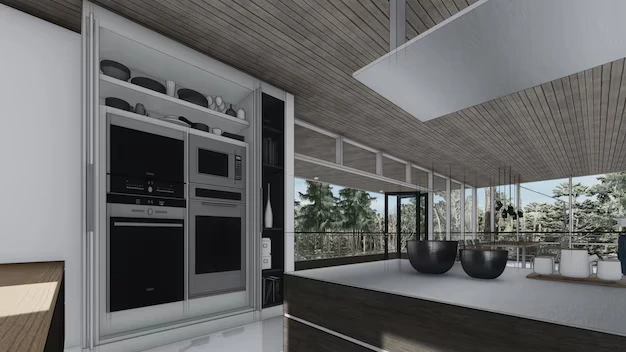Introduction
Undertaking a home renovation can be an exciting journey, but it’s essential to consider how these changes can affect your insurance coverage. Whether you’re upgrading your kitchen, adding a new room, or enhancing your home’s energy efficiency, understanding the interplay between renovations and insurance is vital for protecting your investment.

How Home Renovations Affect Property Value
One of the first impacts of home renovations is on property value. When you make significant upgrades, such as a kitchen remodel or the addition of a home office, the overall value of your property often increases. This boost in value can be advantageous for resale but may also necessitate updates to your insurance policy to ensure the higher value is adequately covered.
Insurance Premium Adjustments: What to Expect
Home renovations can lead to changes in your insurance premiums. For instance:
- Increased Costs: Adding a swimming pool or high-end finishes may increase premiums due to higher risks or replacement costs.
- Decreased Costs: Installing security systems or fire-resistant materials can lower premiums by reducing risks.
Consult your insurance provider before starting renovations to understand potential financial implications.
Risk Assessment and Renovation Types
Different renovation types carry varying levels of risk:
- Low Risk: Cosmetic changes like painting or landscaping typically have little to no impact on insurance.
- High Risk: Structural modifications or electrical rewiring can increase risks if not completed properly.
Insurance companies may require updated risk assessments or inspections following major projects.
The Importance of Compliance with Building Codes
Adhering to local building codes is critical during renovations. Non-compliance can lead to insurance claims being denied in case of damage or accidents. Always work with licensed contractors who are familiar with the legal standards in your area.
Common Policy Exclusions to Watch Out For
Insurance policies often have exclusions that you should be aware of:
- Pre-existing damage: Repairs for damage existing before the policy update may not be covered.
- Specific renovations: Certain high-risk upgrades, like adding a wood stove, might not be insurable unless additional coverage is purchased.
Underinsurance: A Hidden Risk
Failing to update your policy after significant renovations can result in underinsurance. This means your coverage may not be sufficient to rebuild or repair your home in case of disaster, leading to financial strain.
Tips for Navigating the Claims Process
If your renovated home experiences damage, navigating the claims process can be smoother with proper preparation:
- Keep all renovation receipts and contracts.
- Take before-and-after photos of the renovation.
- Inform your insurer promptly about the changes.
Consulting an Insurance Agent: A Key Step
Your insurance agent can offer valuable insights into how your renovations impact your coverage. They can recommend policy adjustments, highlight potential exclusions, and ensure that your home remains adequately protected.
Modern Renovation Trends and Their Insurance Impacts
- Energy Efficiency: Adding solar panels or energy-saving appliances may qualify for insurance discounts.
- Smart Home Features: Security systems and automation can reduce risks, leading to lower premiums.
- Luxury Upgrades: High-value additions like custom kitchens may require supplemental coverage.
Conclusion
Home renovations are a fantastic way to enhance your living space and property value. However, they also come with responsibilities regarding your insurance coverage. By understanding the potential impacts and consulting your insurer, you can ensure your home remains both beautiful and well-protected.
